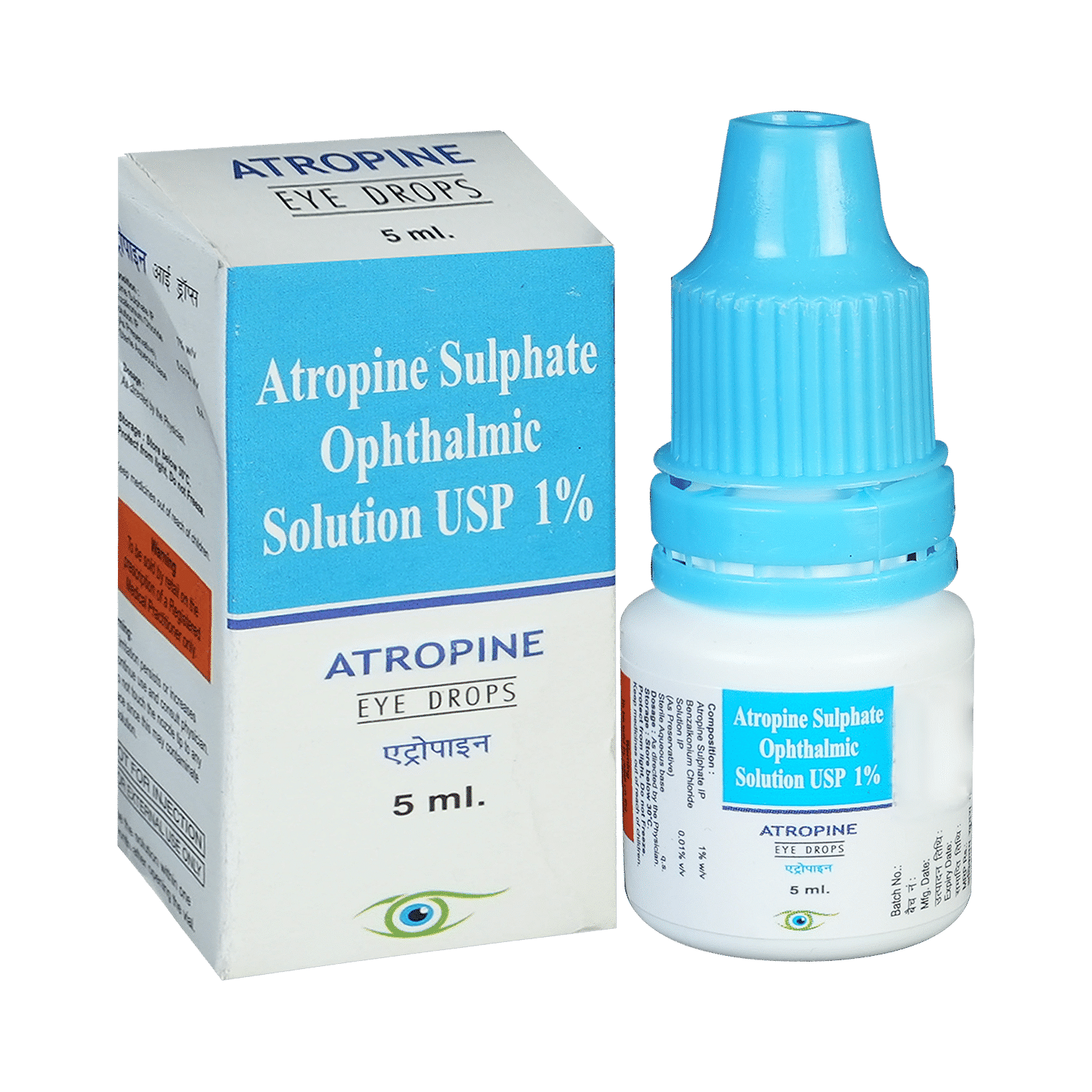
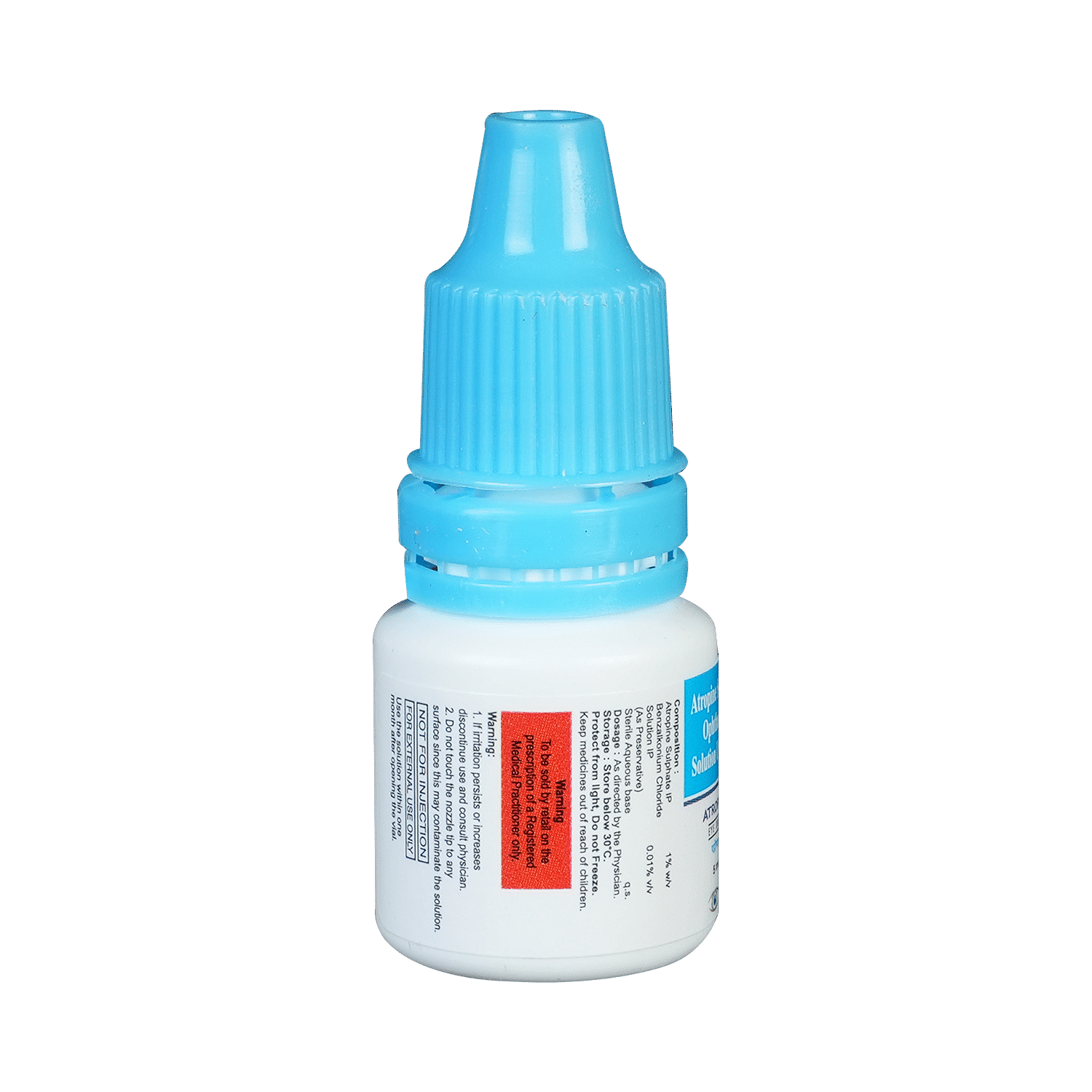
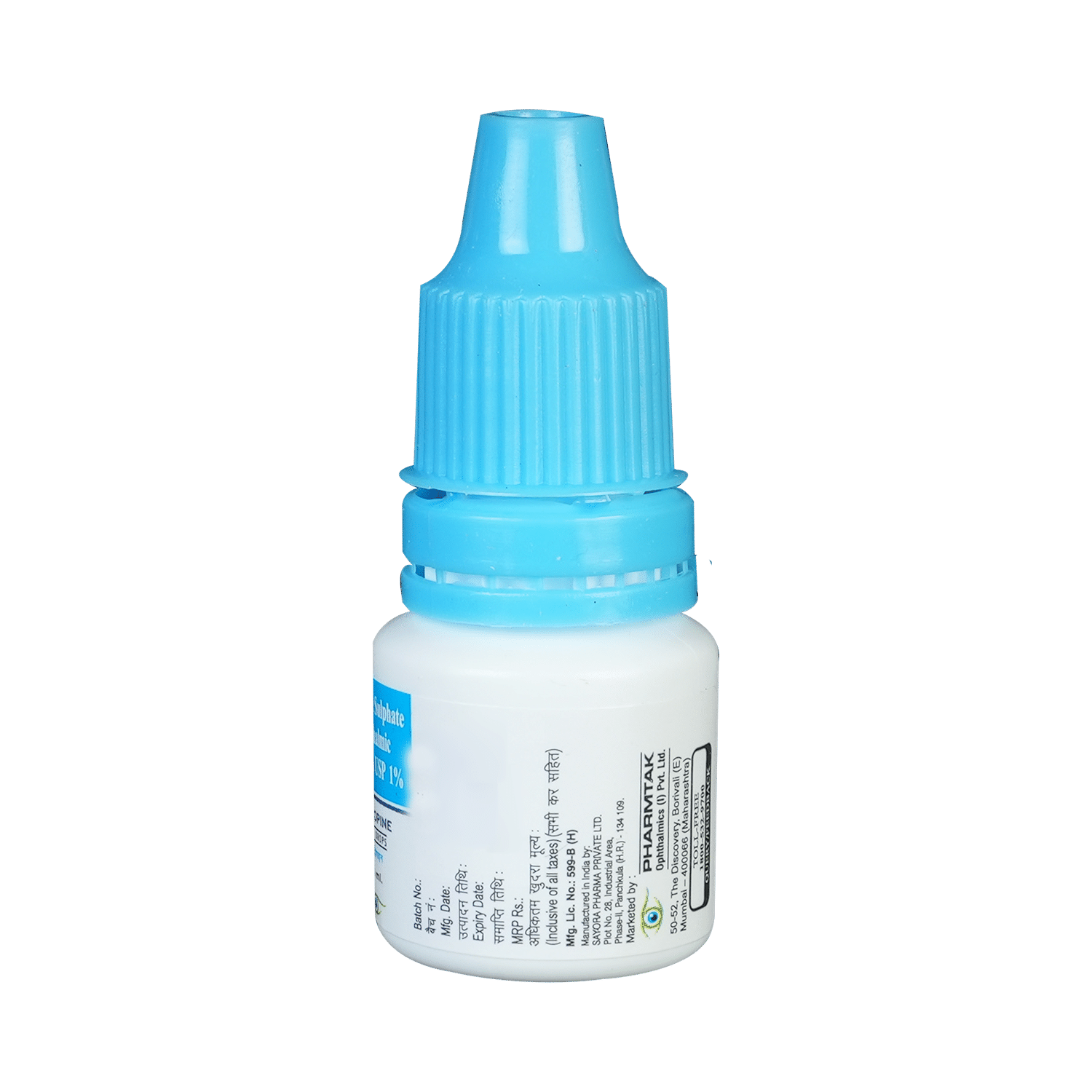
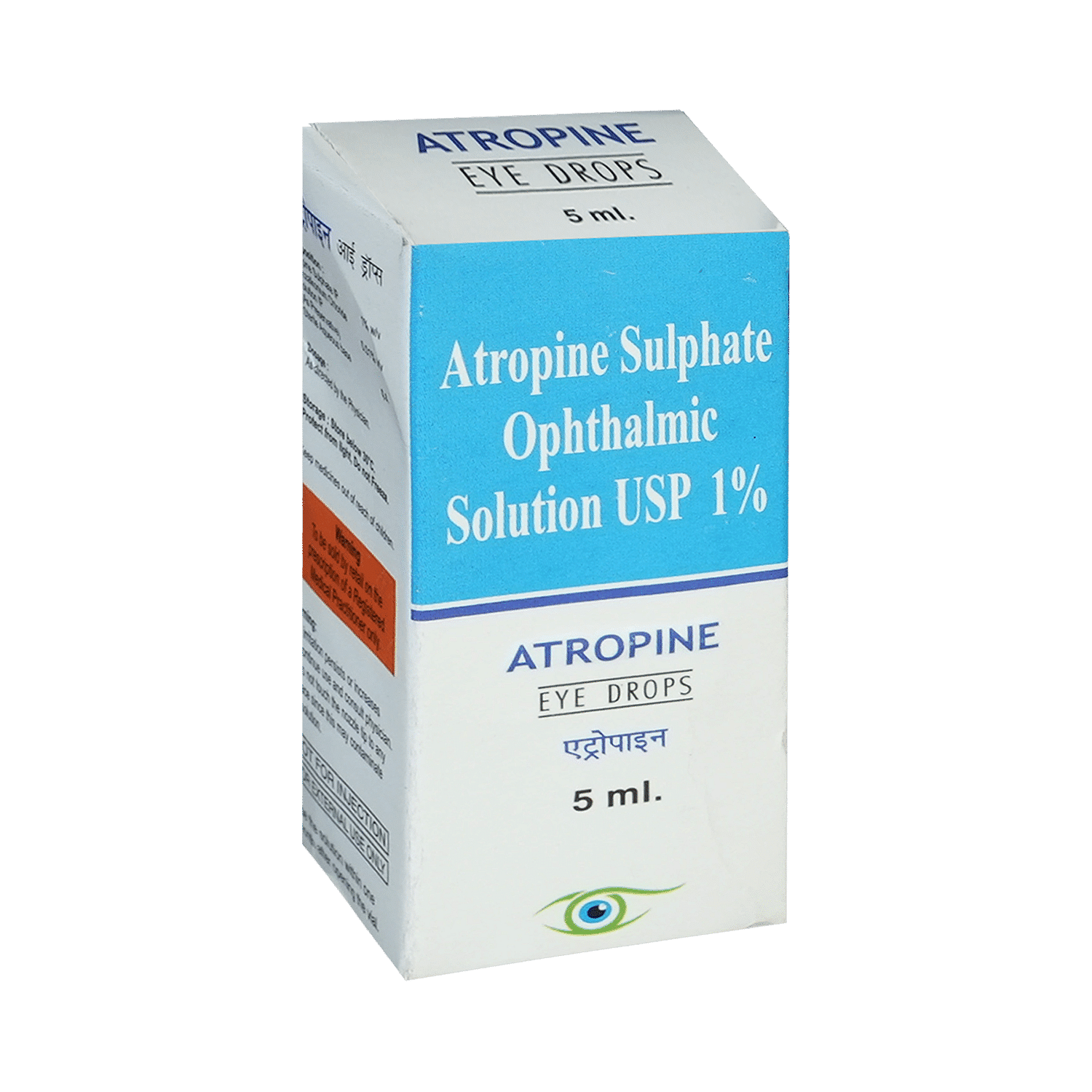
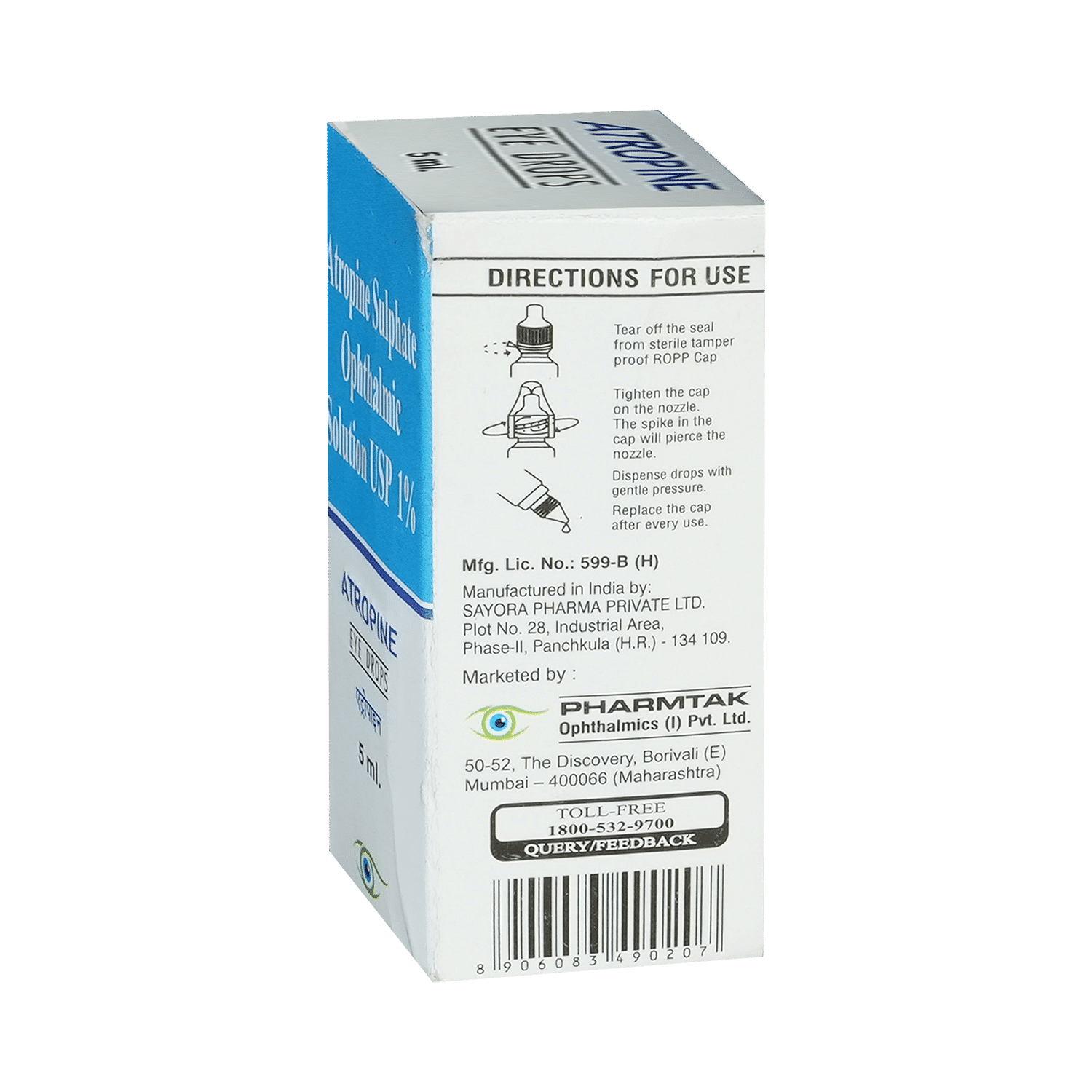

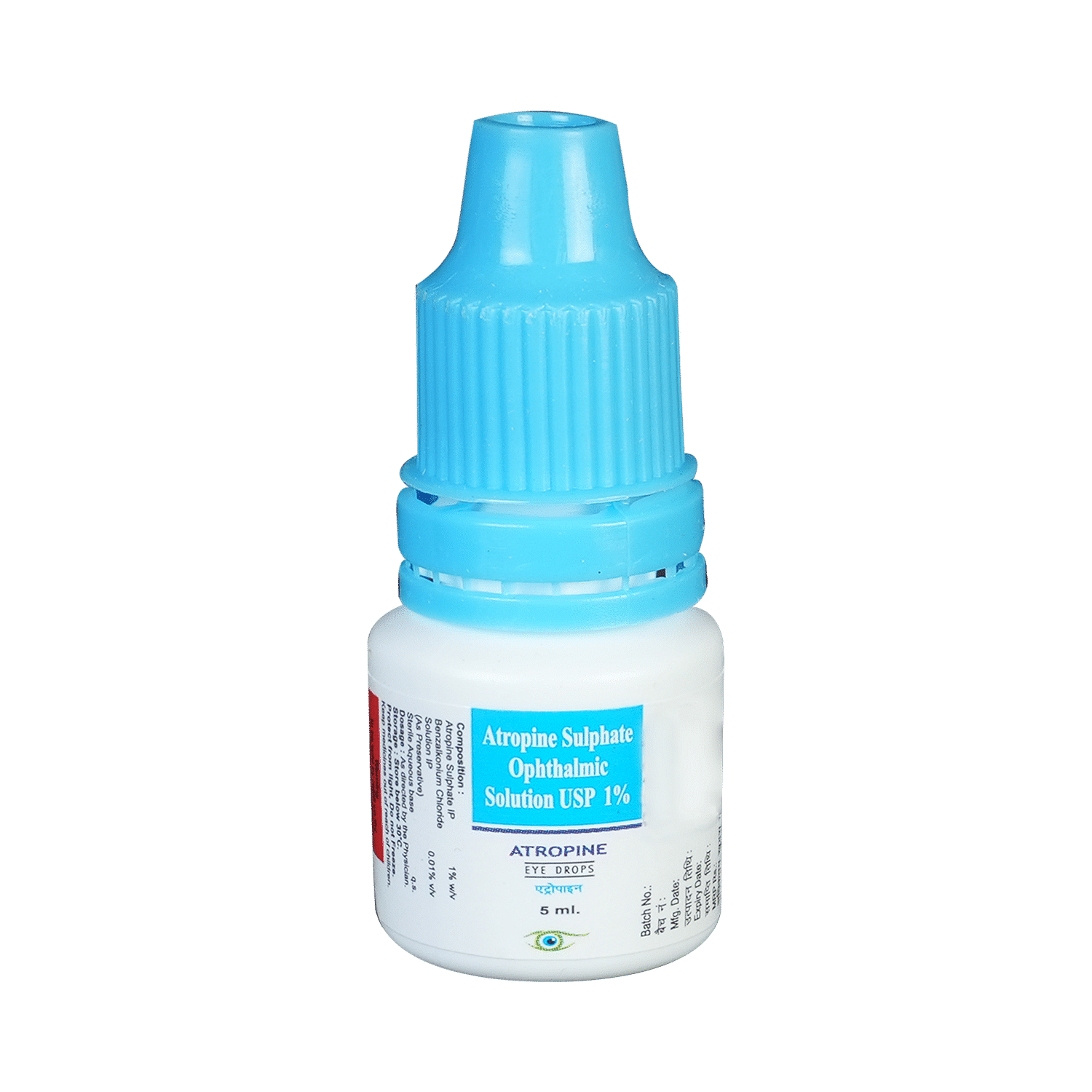
Atropine Eye Drops
Manufacturer
Pharmatak Opthalmics Pvt Ltd
Salt Composition
Atropine (1%w/v)
Key Information
Short Description
Atropine 1% Eye Drop is used to treat myopia and inflammation in the eyes (uveitis or iritis). It is also used to induce cycloplegia for eye examination and diagnose eye problems like blurred vision or squint in children.
Dosage Form
Eye Drop
Introduction
Atropine 1% Eye Drop is an anticholinergic medication used to treat myopia and inflammation in the eyes. It is also used to induce cycloplegia for eye examination and diagnose eye problems like blurred vision or squint in children. It works by making the pupil of your eye larger and relaxes the muscles in your eye, allowing proper examination. It also helps reduce inflammation or swelling in the eye (uveitis or iritis).
Directions for Use
This medicine is for external use only. Use it in the dose and duration as advised by your doctor. Check the label for directions before use. Hold the dropper close to the eye without touching it. Gently squeeze the dropper and place the medicine inside the lower eyelid. Wipe off the extra liquid.
Safety Information
Side Effects
No common side effects listed.
Breastfeeding Warning
Atropine 1% Eye Drop is probably unsafe to use during breastfeeding. Limited human data suggests that the drug may pass into the breastmilk and harm the baby. Milk secretion may decrease.
Pregnancy Warning
Atropine 1% Eye Drop may be unsafe to use during pregnancy. Although there are limited studies in humans, animal studies have shown harmful effects on the developing baby. Your doctor will weigh the benefits and any potential risks before prescribing it to you. Please consult your doctor.
Interacting Medicines
Donepezil Rivastigmine Galantamine Amisulpride
How it works
Atropine 1% Eye Drop is an anticholinergic medication. It works by making the pupil of your eye larger and relaxes the muscles in your eye, allowing proper examination. It also helps reduce inflammation or swelling in the eye (uveitis or iritis). Using Atropine 1% Eye Drop dilates the pupils and temporarily paralyzes the focusing muscle inside the eye. It also relaxes the eyes' focusing mechanisms. This treats myopia.
Quick Tips
Use it as suggested by the doctor. It may cause blurred vision. Do not drive or do anything that requires mental focus until you know how this medicine affects you. Generally, it is not advised to wear contact lenses but if you have to wear then wait for 15 minutes to reuse. You may be asked for regular eye checkups before and during the treatment. Stop using medication or inform your doctor if you notice eye irritation, redness, swelling of the eyelids, and sensitivity to bright light. Inform your doctor if you are pregnant, planning pregnancy, or breastfeeding.
Related Medicines
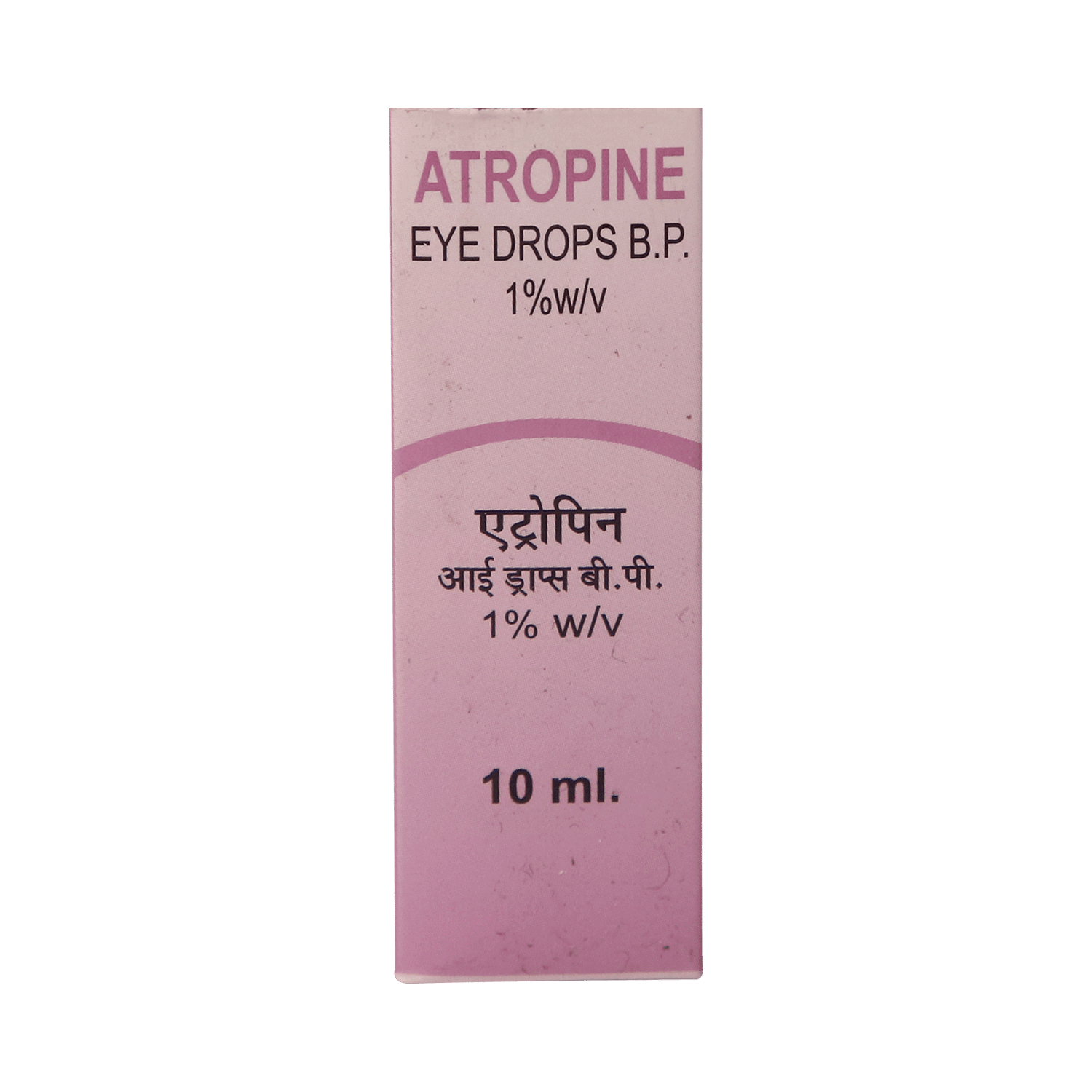
Atropine 1% Eye Drop

Topin Eye Drop

Atrone 1% Eye Drop

Bell Pino Atrin Eye Drop

Bell Pino Atrin Eye Drop

Bellpino Atrin 1% Eye Drop

Atrop Eye Drop

Atromet Eye Drop

Kaitro Eye Drop
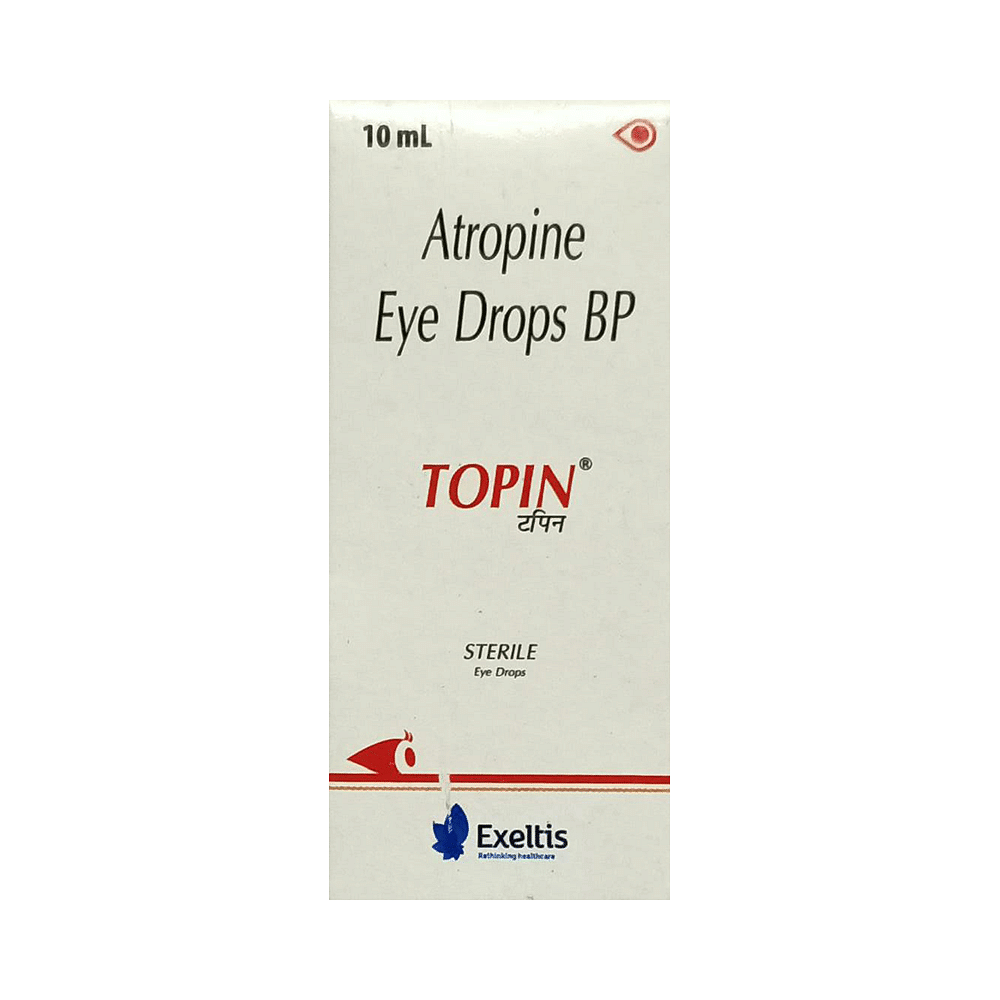
Topin Eye Drop


